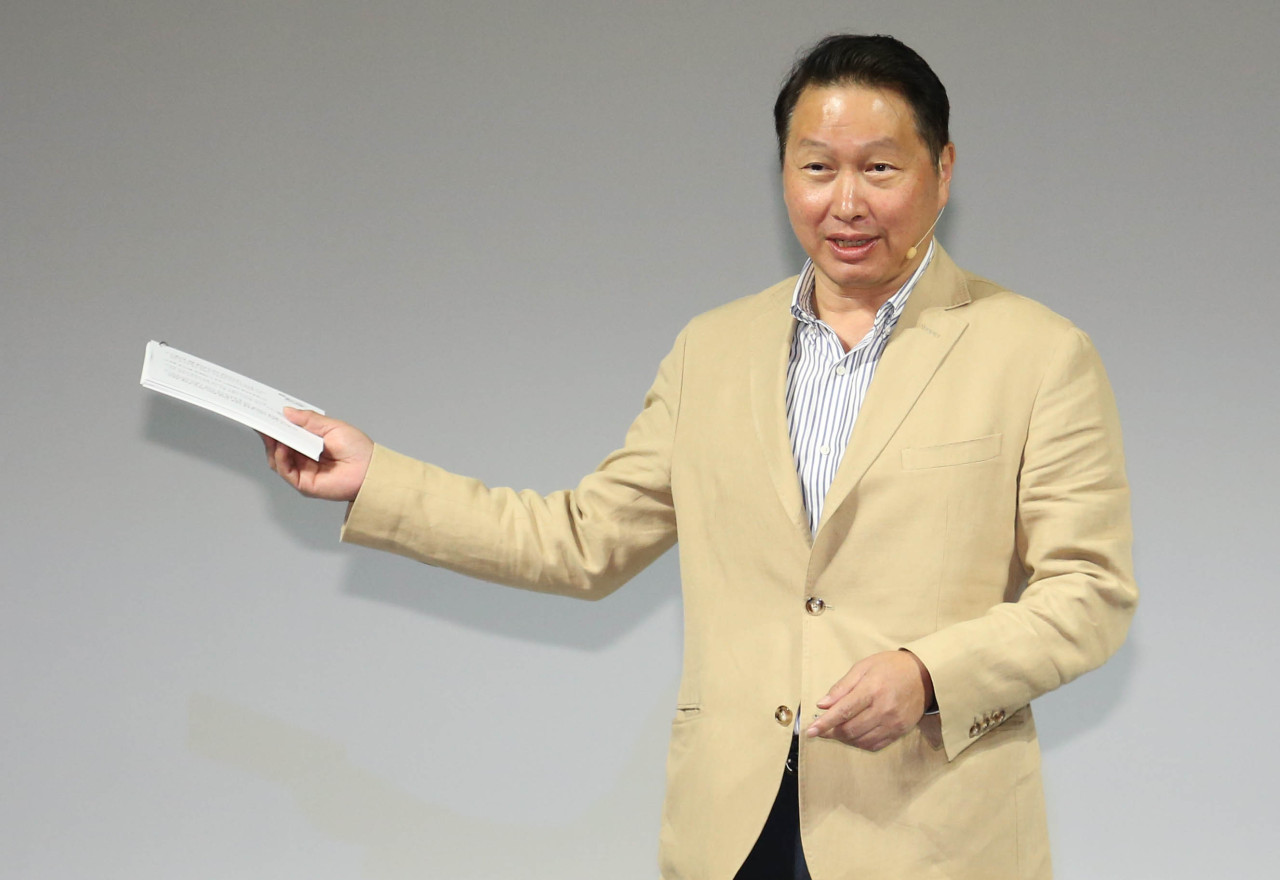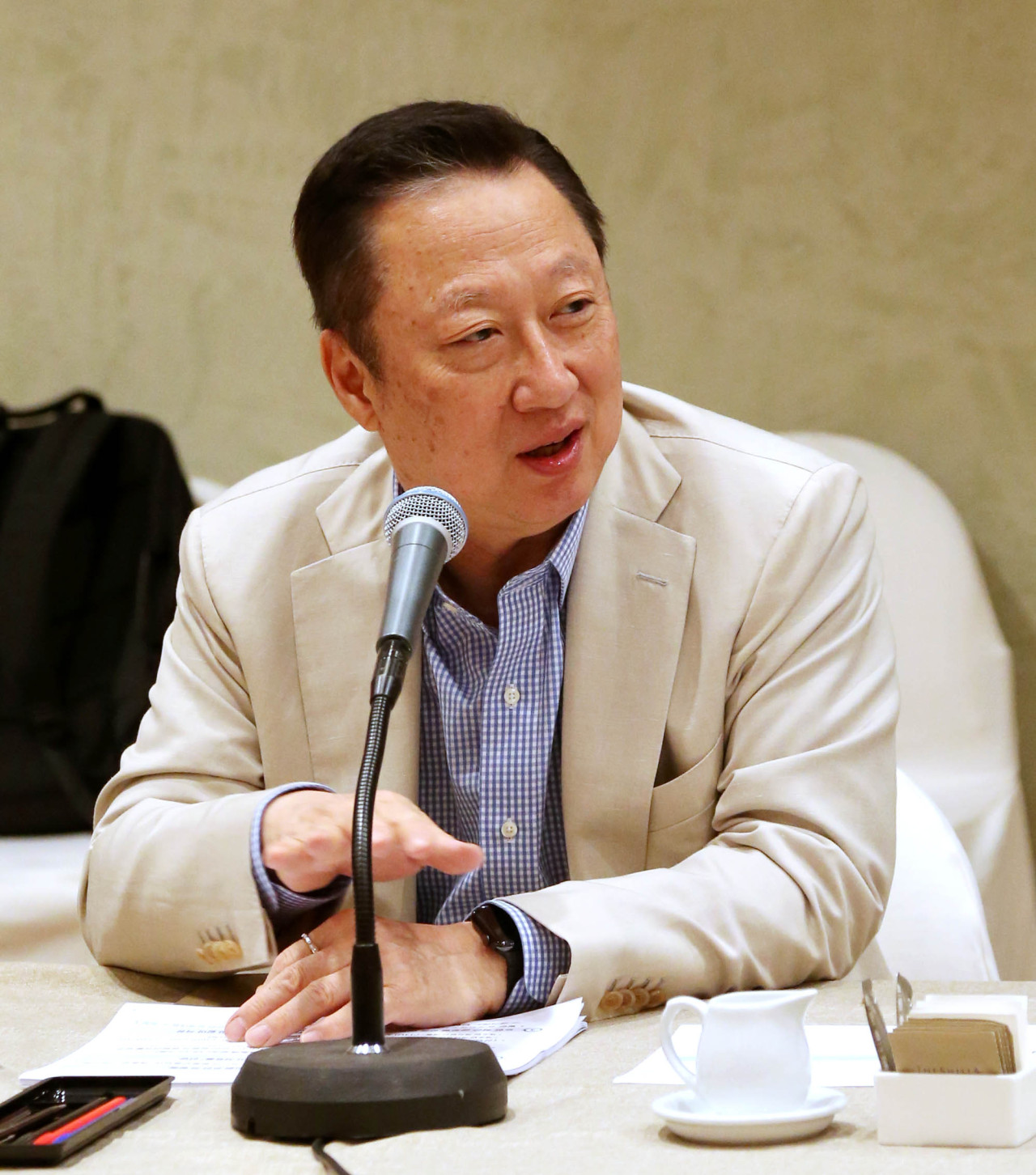Calm, steady approach needed to tackle Japan’s export curbs: SK chief Chey
KCCI chief urges political unity to support Moon on trade dispute
By Cho Chung-unPublished : July 18, 2019 - 15:46
SEOGWIPO, Jeju Island -- SK Group Chairman said Thursday he will come up with countermeasures against Japan’s strengthened export control of three materials crucial for chip fabrications in a calm manner, stressing that a knee-jerk reaction would not help resolve the matter.
“(The best way to resolve the matter) is to seek what we can do the best steadily and everyone (finds a breakthrough) from our respective positions. This case won’t work even with any dramatic plans,” he said in an impromptu meeting with reporters on the sidelines of the Korea Chamber of Commerce Industry’s Jeju Forum held on the resort island.
“(The best way to resolve the matter) is to seek what we can do the best steadily and everyone (finds a breakthrough) from our respective positions. This case won’t work even with any dramatic plans,” he said in an impromptu meeting with reporters on the sidelines of the Korea Chamber of Commerce Industry’s Jeju Forum held on the resort island.

The tycoon also hinted at visiting Japan to support the conglomerate’s semiconductor manufacturing unit and seek a breakthrough.
“(I) will visit Japan if necessary, as it has been (my) usual business destination, to help resolve the matter and get support,” he said without elaborating whom he is likely to meet.
When asked whether its chipmaking subsidiary SK hynix has begun testing the use of domestically produced hydrogen fluoride -- one of the three key materials -- Chey said the quality of the material has not been proven yet.
“(Domestic players) produce (hydrogen fluoride), but what matters is its quality. The molecular size of hydrogen fluoride is different for each (fabrication) process. We need hydrogen fluoride type that fits each process, but I don’t think (domestically produced hydrogen fluoride) has detailed (variation) that much,” he said, adding that he remains positive on such a plan even though it might take some time to reach the level of Japanese products.
The comments came after reports that the two Korean semiconductor giants -- Samsung Electronics and SK hynix -- have started testing the applicability of hydrogen fluoride produced here, as an alternative to Japan’s restrictions. Minister of SMEs and Startups Park Young-sun held Korean conglomerates responsible for the delayed domestic production of hydrogen fluoride, saying that they couldn’t do so because big companies didn’t buy their products for years.
Meanwhile, KCCI Chairman Park Yong-maan urged the ruling and the main opposition parties to stop attacking each other and unite to support President Moon Jae-in to revert the deteriorating bilateral relationship between Seoul and Tokyo.

“Now is the time for businesses to show their support for the president to do his best and reduce his burden as the head of state,” he said at a press conference held on Wednesday afternoon.
Stressing the need to find fundamental solutions and strategic long-term plans on the ongoing trade dispute, Park also urged businesses to diversify the supply chains.
To do so, the government has to lift related regulations to speed up development of domestically produced materials. Businesses also have to look for alternatives overseas, other than Japan, he said, suggesting joint partnerships on technology transfer with foreign companies.
“We need to abandon (the conventional) thinking of producing a 100 percent made-in-Korea product and have flexible and open ideas in order to speed up the process (of development).”
Both Chey and Park were attending the annual forum held by KCCI on the nation’s southern resort island. Chey was one of speakers at the four-day forum. The chairman who has been advocating his corporate philosophy of creating social value by companies urged businesses to institutionalize measuring their social contributions not only to solve the myriad of social problems but also for their sustainable development.
By Cho Chung-un (christory@heraldcorp.com)









![[Hello India] Hyundai Motor vows to boost 'clean mobility' in India](http://res.heraldm.com/phpwas/restmb_idxmake.php?idx=644&simg=/content/image/2024/04/25/20240425050672_0.jpg&u=)










